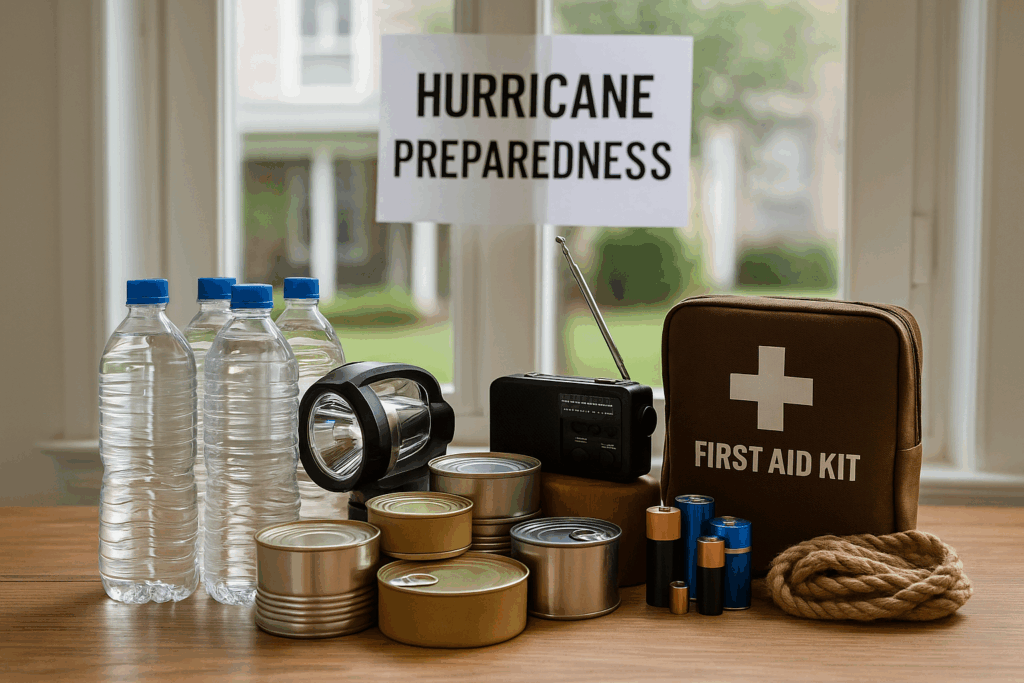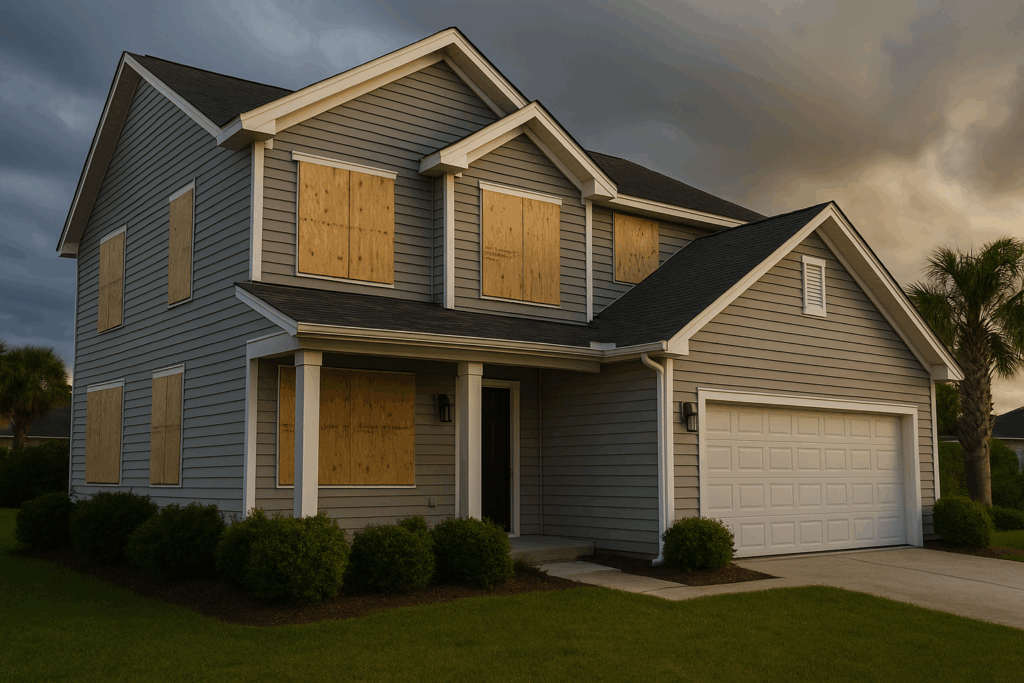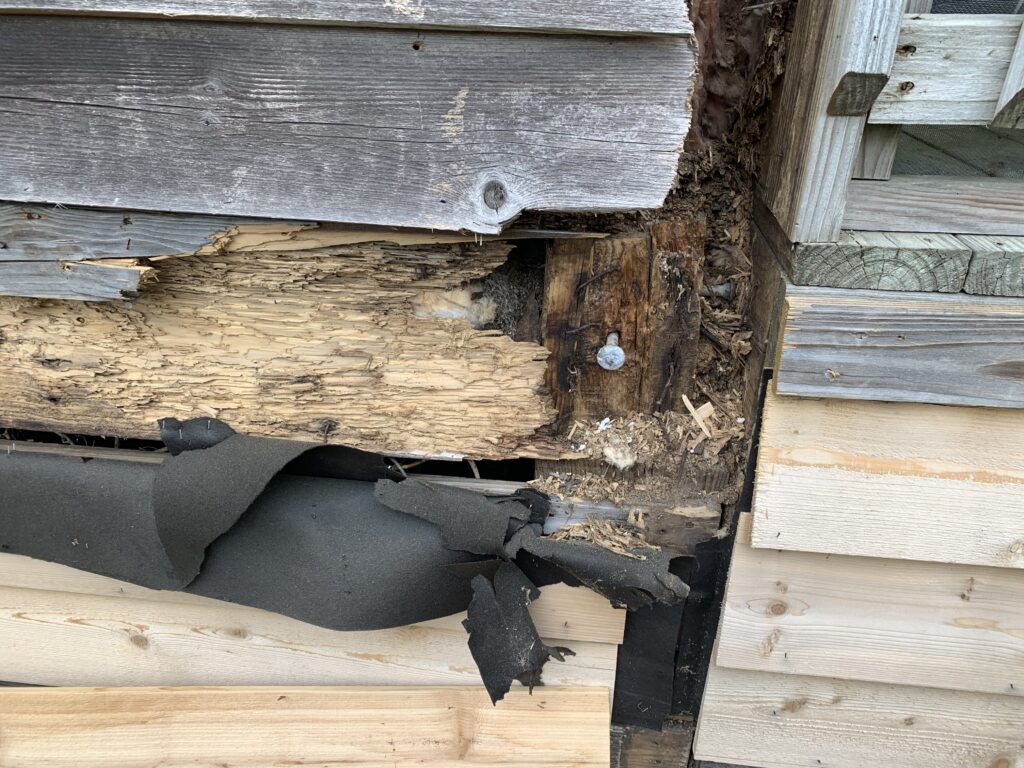Hurricane Season in Myrtle Beach: How to Be Prepared
Living in Myrtle Beach means enjoying ocean breezes, world-class beaches, and a relaxed coastal lifestyle. But if you call this slice of paradise home, it’s important to understand what comes with it—including hurricane season. From June 1 to November 30 each year, residents must stay alert, informed, and prepared to protect their homes, families, and peace of mind.
Whether you’re new to the Grand Strand or a long-time homeowner, this guide will walk you through exactly how to prepare for hurricane season while enjoying the benefits of living in Myrtle Beach.
How to Prepare for Hurricane Season in Myrtle Beach
Step 1: Create a Hurricane Preparedness Plan
Start with the basics: determine your Horry County evacuation zone (A, B, or C). Authorities will issue zone-based evacuation orders depending on storm strength. Know your zone in advance, map out your evacuation route, and have a destination ready if you need to leave quickly. If you have pets, make arrangements for pet-friendly accommodations early, as most emergency shelters do not allow animals.
Step 2: Assemble a Complete Emergency Kit
Every home in Myrtle Beach should have a stocked emergency kit ready before a storm is even on the radar. Your kit should include:
- Three days’ worth of non-perishable food and two gallons of water per person, per day
- Flashlights, batteries, a battery-operated radio, and phone chargers
- First-aid kit, prescription medications, and hygiene items
- Cash, important documents in waterproof containers, and clothing
Step 3: Secure Your Home and Property
Protecting your home from high winds and flooding is crucial. Trim trees, clean gutters, and secure or store outdoor furniture and decorations. Install storm shutters or board up windows with plywood if a storm is approaching. Check the roof for loose shingles and secure entry points, especially garage doors, to reduce wind intrusion.
Step 4: Review Your Insurance Coverage
If you’re living in Myrtle Beach full-time, understanding your home insurance is a must. Standard policies typically don’t include flood coverage. Look into a separate flood insurance policy and make sure your coverage limits reflect current property values. Take photos or videos of your home’s interior and exterior in advance for claims documentation.
Step 5: Know When to Evacuate
When evacuation orders are issued, don’t wait. Leave early to avoid traffic and worsening weather conditions. Fuel up your vehicle in advance, and have a go-bag ready. If you’re not required to evacuate and choose to shelter in place, stay indoors, monitor local news, and avoid driving through flooded roads.
Step 6: Stay Safe After the Storm
After the storm has passed, proceed with care. Watch for downed power lines, broken glass, and flood-contaminated water. Wear protective gloves and boots when cleaning debris. Take photos of any damage before beginning repairs, and work only with licensed contractors to avoid scams.
Living in Myrtle Beach Means Being Prepared
Part of living in Myrtle Beach is learning how to balance paradise with preparedness. While hurricanes aren’t guaranteed each season, being ready gives you confidence and peace of mind. A little planning now will protect your property, your family, and your lifestyle on the coast.
Final Thoughts
Hurricane season is simply a part of coastal living, and with the right steps in place, you can continue enjoying everything Myrtle Beach has to offer without worry. Make your preparations early, review your plan regularly, and stay connected to local alerts and weather forecasts.
If you’re relocating or considering a move, our team at Myrtle Beach Homes Blog is here to help you find a safe, beautiful home that fits your lifestyle and your long-term plans for coastal living.
Thinking of making a move to Myrtle Beach in the near future? Book a Call with Jeremy to discuss your upcoming move to Myrtle Beach!










